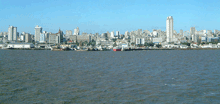
Building Trust in AI through Justice


Array
(
[thumbnail] => https://s42831.pcdn.co/wp-content/uploads/2022/09/hero-placeholder-150x150.png
[thumbnail-width] => 150
[thumbnail-height] => 150
[medium] => https://s42831.pcdn.co/wp-content/uploads/2022/09/hero-placeholder-300x129.png
[medium-width] => 300
[medium-height] => 129
[medium_large] => https://s42831.pcdn.co/wp-content/uploads/2022/09/hero-placeholder-768x329.png
[medium_large-width] => 768
[medium_large-height] => 329
[large] => https://s42831.pcdn.co/wp-content/uploads/2022/09/hero-placeholder-1024x439.png
[large-width] => 1024
[large-height] => 439
[1536x1536] => https://s42831.pcdn.co/wp-content/uploads/2022/09/hero-placeholder.png
[1536x1536-width] => 1400
[1536x1536-height] => 600
[2048x2048] => https://s42831.pcdn.co/wp-content/uploads/2022/09/hero-placeholder.png
[2048x2048-width] => 1400
[2048x2048-height] => 600
[gform-image-choice-sm] => https://s42831.pcdn.co/wp-content/uploads/2022/09/hero-placeholder.png
[gform-image-choice-sm-width] => 300
[gform-image-choice-sm-height] => 129
[gform-image-choice-md] => https://s42831.pcdn.co/wp-content/uploads/2022/09/hero-placeholder.png
[gform-image-choice-md-width] => 400
[gform-image-choice-md-height] => 171
[gform-image-choice-lg] => https://s42831.pcdn.co/wp-content/uploads/2022/09/hero-placeholder.png
[gform-image-choice-lg-width] => 600
[gform-image-choice-lg-height] => 257
)

Today, many low-income countries and fragile and conflict-affected states are at a crossroads. Discoveries of oil, gas, and other minerals have raised hopes for a new start. The number of low- and middle-income countries making significant use of their resource wealth has risen more than 30 percent between 1996 and 2010 – up from 46 to 61 countries. According to the World Trade Organization, approximately one fifth of the world’s trade flow involves natural resources. For as many as 21 developing resource-rich states, this trade is of particular importance because natural resources comprise approximately 80% of total exports. In Africa, natural resource exports constitute approximately 74% of total merchandise exports. At the same time the global economy is changing. The rise of the emerging powers and increased demand for natural resources to fuel expanding economies has meant booming commodity prices, potentially bringing much needed revenues to conflict-affected and low-income countries for investment and development.
But while natural resource wealth has the potential to lift many out of poverty, sustain economic growth, and foster political stability, it does not guarantee these benefits. The absolute levels of human development in many resource-rich countries remain low, despite their apparent wealth. While growing investments offer new opportunities for low- and middle-income countries for growth and development, they are also changing the dynamics of resource governance. The challenge is to adopt policies that better harness the potential of natural resources, not only as an opportunity for development, but also to foster policies and institutional innovations that manage resource wealth equitably and boost human capital. As my colleagues Molly Elgin-Cossart and Jenna Slotin write in Why Would Peace Be Controversial at the UN?, “To promote inclusive and sustainable growth, the good governance of natural resources is a particularly acute need…Poor resource management has been estimated to cost Africa alone $38 billion a year in lost revenue.” The problems caused by wealth are – of course – avoidable; and the international community is increasingly interested in identifying feasible actions that could significantly contribute to mitigating conflict and promoting sustainable peace and economic and social development for all resource-rich countries.
Mozambique’s experience provides a salutary story of the challenges and potential benefits of natural resource wealth. Recent discoveries of resources like gas and minerals could provide a major opportunity for additional revenues to support poverty reduction and human development as well as reducing the government’s dependency on aid from traditional donors, helping the Government of Mozambique to take more control of its policy process. But this boom also presents a number of challenges. After a period of peace and development, Mozambique is again experiencing instability, partly fueled by differing perceptions of who is benefiting from the natural resource boom. Recent violent skirmishes between the two Mozambican leading parties – Frelimo and Renamo – illustrate why developing effective natural resource management policies are so important. How can the Government of Mozambique best manage these new revenues to promote inclusive growth that is also pro-poor? Will these new revenues enrich the few to the detriment of the many, increasing inequality and tipping the nation further into instability? How can the international community, and in particular the UN, serve as a resource to draw useful lessons from for countries like Mozambique to better manage their natural resources and choose a more inclusive and sustainable path?
CIC’s case study Mozambique in Transition and the Role of the UN, while predating the current instability, analyzes the socioeconomic changes in Mozambique since the end of the conflict in 1992 and the role and performance of the UN in helping Mozambique get this far. It argues that, despite rapid economic growth (an average rate of about eight percent per year since 1997) and substantial FDI inflows, there has been little progress in human development and poverty reduction in the country. It highlights the growing divergence between the interests of the Government and the interests of the State when managing Mozambique’s newfound resource wealth. And it concludes that the UN has an opportunity to use its normative agenda (e.g. protection of universal human rights, Millennium Development Goals) to help the whole of Mozambique (government, civil society, private sector, media) better manage its natural resources. It suggests that the UN could have a facilitative and mediation role in the natural resource management discussions, focusing on its objective to promote human development as well as further knowledge-sharing and innovative approaches from other country experiences.
With talks between Frelimo and Renamo due to restart shortly, it is hoped that they will be able to find an equitable way to share natural resource revenues so that Mozambique’s people are able to benefit. Whatever the final deal looks like, the international community and UN should carefully consider their strategies in other resource-rich, low-income, and fragile and conflict affected states. It will be important to ensure that other developing countries can learn from the experience of Mozambique – as well as that of many others – when building their own natural resource management policies. One thing’s for sure: resource wealth has the potential to yield enormous benefits, but only so long as countries have the governance and institutions to navigate the transition wisely.


Subscribe to our newsletter and receive regular updates on our latest events, analysis, and resources.
"*" indicates required fields